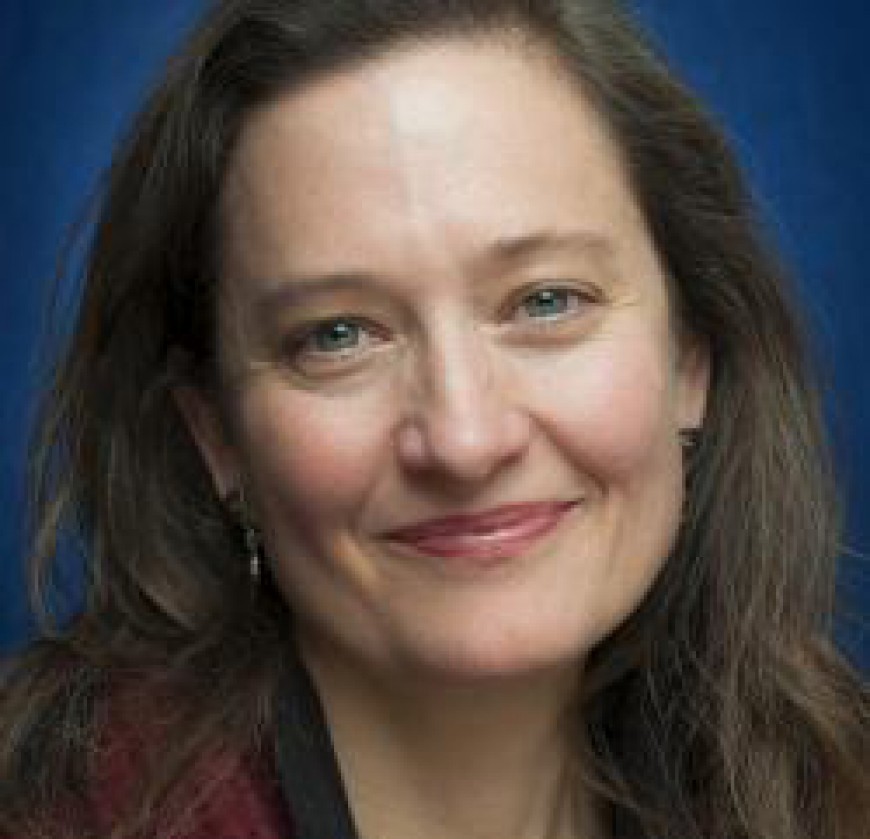
 back to all news
back to all news
Prof. Rebecca Hardin named SEAS Faculty Director of Justice, Equity, Diversity, and Inclusion

Longtime SEAS faculty member Dr. Rebecca Hardin, who teaches in the Environmental Justice specialization, has been named the Faculty Director of Justice, Equity, Diversity, and Inclusion (JEDI).
Hardin will provide JEDI leadership within SEAS and advance efforts to create a more inclusive community, a more diverse faculty, student body, and staff, and a more equitable environment within which all members of the community can thrive. In addition, Hardin will work to promote the integral nature of JEDI to environment and sustainability education, research, and engagement in society. This will include leading efforts to build SEAS’ online education capacity related to JEDI, for both academic and non-academic audiences.
“What’s exciting for me is to take a turn at the helm of an institution that attracted me, in part, by being a beacon of diversity, equity, inclusion, and justice long before it was the rage,” said Hardin, an associate professor who joined the SEAS faculty in 2003. “I'm so grateful for the opportunity to serve in this capacity and to help our school grow its leadership and excellence on JEDI issues going into the future. There’s been some really phenomenal foundational work being done in our school community during the past six months, and I look forward to amplifying and increasing the visibility of that work among faculty colleagues, both at SEAS and across campus.”
Hardin’s appointment is part of a broader effort to enhance diversity, equity, and inclusion at SEAS, and it builds upon the efforts of the SEAS Equity and Justice Initiative and the recently announced Tishman Center for Social Justice and the Environment. In addition, Hardin’s leadership will complement the work being done by Lauren Davis, the SEAS Director of Diversity, Equity, and Community, and her newly expanded Diversity, Equity, and Inclusion (DEI) team.
“More than ever, we want SEAS to be a leader in fighting injustice and racism, both on campus and off,” said Jonathan Overpeck, the Samuel A. Graham Dean and the William B. Stapp Collegiate Professor of Environmental Education. “While all of us have a role to play in advancing equity and justice, I’m particularly excited to have Dr. Hardin serve as our JEDI faculty director. She has been present and engaged in justice and DEI conversations at SEAS for years, and she has the wonderful ability to empathize and connect with a wide range of people, especially in challenging situations.”
A trained anthropologist, Hardin has a wealth of environmental justice expertise. In particular, she has deep experience working directly with communities, especially in Africa, to advance justice.
Hardin’s areas of interest and scientific study include human/wildlife interactions, and social and environmental change related to wildlife management, tourism, logging, and mining in equatorial Africa, especially the western Congo basin. Recent projects have focused on the increasingly intertwined practices of health, environmental management, and corporate governance in Gabon, but also sites in South Africa and Kenya.
Most recently, her research has expanded to include digital access and digital justice. As the director of Michigan Sustainability Cases, she oversees the creation of an open-access platform, learngala.com, where students, faculty, and professionals from around the world can collaborate on creating and using multimedia cases about sustainability science. Its goal is to foster online learning and the sharing of digital resources in ways that enable many kinds of learners and specialized knowledge holders to come together around problem-solving.
Hardin, who grew up in East Tennessee, surrounded by “white, rural, poor Appalachia,” credits her upbringing with helping to shape her understanding of the injustices people experience. Her father, raised in Alabama, helped to desegregate schools in the U.S. South through his work with the U.S. Department of Justice Civil Rights Division. He met Hardin’s mother on scholarship at the University of Chicago, where she was studying social work, supporting impoverished families on Chicago’s South Side. They later worked together to oppose the Tennessee Valley Authority’s flooding of Cherokee lands, organizing the campaign with then University of Michigan law student Zygmunt Plater and testifying before the U.S. Supreme Court.
“As advocates for racial, economic, and environmental justice in this country, my parents raised me with a strong sense of understanding structural inequity and to work on addressing it in the world,” Hardin said.
A stint in the Peace Corps further opened Hardin’s eyes “to the global injustices of colonialism and postcolonialism and how entire peoples get locked into economically dependent relationships that are deeply unfair.” It also introduced her to the trouble with widespread “white saviorism” both at home and abroad, and the need for more equitable and diverse teams to address challenges in today’s world.
Those combined experiences and perspectives, Hardin said, “have helped me stop and consider whether someone’s perspective might be a reflection of how they themselves experienced some form of structural injustice, and how to acknowledge that and not blame them for the ways in which they need to work to overcome their limited perspective, but rather create conditions under which they can try out new ideas.”

